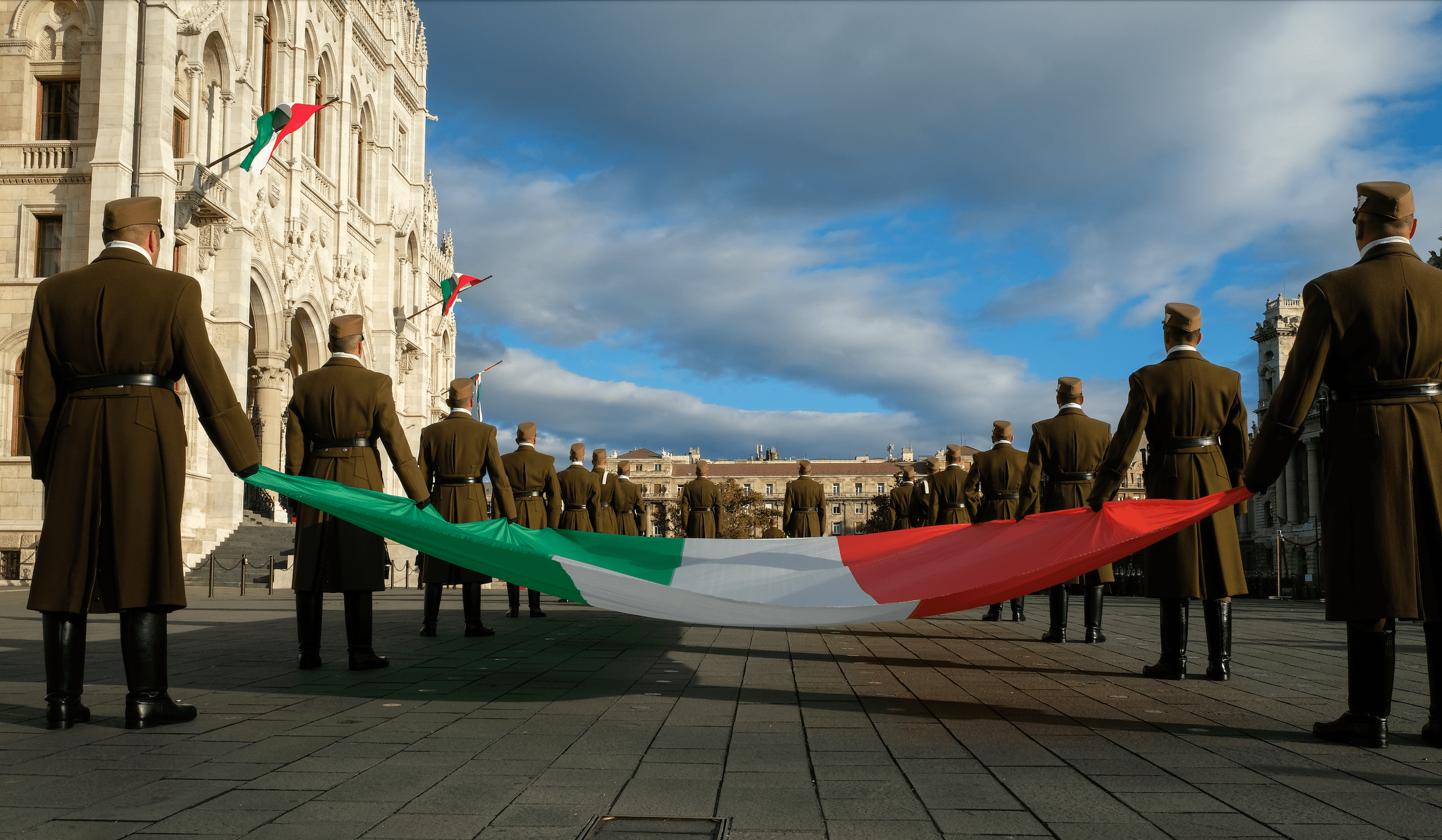15 March, dedicated to the Revolution and Freedom Fight of 1848–49, is one of the most important national holidays of Hungary. The revolution that broke out on this day 175 years ago today was inspired by the events in Vienna, where a similar series of political protests took place a couple of days earlier. The demonstrating crowd in Pest demanded basic liberties, including the freedom of press, the establishment of an independent parliament and the release of political prisoners. The demands had been eloquently formulated in the 12-points drafted by the so-called March Youth, a group of young intellectuals who took the lead in the protest.
Soon, however, the original demands escalated, and the revolutionaries set their sights on the full independence of the country that was under Habsburg rule at the time.
While initially the uprising did lead to some political reforms, Hungary’s ambition of independence soon provoked a military conflict between the rebels and the Habsburg Empire, which turned the revolution into a freedom fight. After about a year of struggle, the fight was lost, and on 13 August 1849 Hungarian General Artúr Görgey, the commander in chief of the Hungarian forces, surrendered to the Russian Tzar’s Army—that had invaded the country upon Habsburg request—but not to the Austrians.
15 March, marked by gatherings, placing wreaths and flowers at monuments dedicated to the ones who fought for the country’s independence, serves as a reminder of the heroism and sacrifice that thousands of our forbears were willing to make for a brighter future of the homeland. 15 March celebrations teach Hungarian schoolchildren from a very early age to honour these great deeds and
not to take for granted the country’s independence and self-determination, as it was achieved at a great cost.
Till this day, there is hardly a settlement in Hungary and across the Carpathian Basin where Hungarian communities live where at least one street or public building does not bear the name of such heroes of the revolution as Lajos Kossuth or Sándor Petőfi.
Although the revolution and freedom fight was crushed, 15 March is not a day of mourning, but of delayed victory. While the defeat of the Revolution and Freedom Fight was followed by ruthless retaliation and even more oppression, eventually the Habsburg Empire was forced to reform and bow to many of the demands of the revolutionaries. The Compromise of 1867 that transformed the Habsburg Empire into the Austro-Hungarian Monarchy, endowing Hungary with more autonomy, was a direct consequence of 1848–49. The sacrifice and heroism of the revolutionary Hungarian generation were not in vain: with time, the seed sown on 15 March sprouted, bringing more liberty and independence to the country.
This year Hungary’s national poet, Sándor Petőfi, who fought and perished in the Freedom Fight, is in the spotlight even more than usual, as 2023 marks the bicentenary of his birth. His iconic poem below about the revolutionary spirit of the oppressed peoples of the era sums up well the sentiments of the young rebellious intellectuals who spearheaded the March revolution.
The Whole Sea Has Revolted
The whole sea has revolted,
The nation in full spate
Has earth and heaven assaulted
And over sea-walls vaulted
With terror in its wake.
See how she treads her measure?
You hear her, as she peals?
If you’ve not had the pleasure
Then watch her sons at leisure
Kicking up their heels.
At nineteen to the dozen.
Great vessels roll about,
And fall where she has risen,
To hell with mainmast, mizzen,
And sails turned inside out.
Pound on, exhaust your passion
Batter at passion’s drum,
Expose your depths, the riven
Furies and fling to heaven
The filthy tidal scum.
Eternal heaven bear witness
Before all heaven’s fools:
Though ships bob on the surface
And oceans run beneath us
It is the water rules.
translated by by George Szirtes








